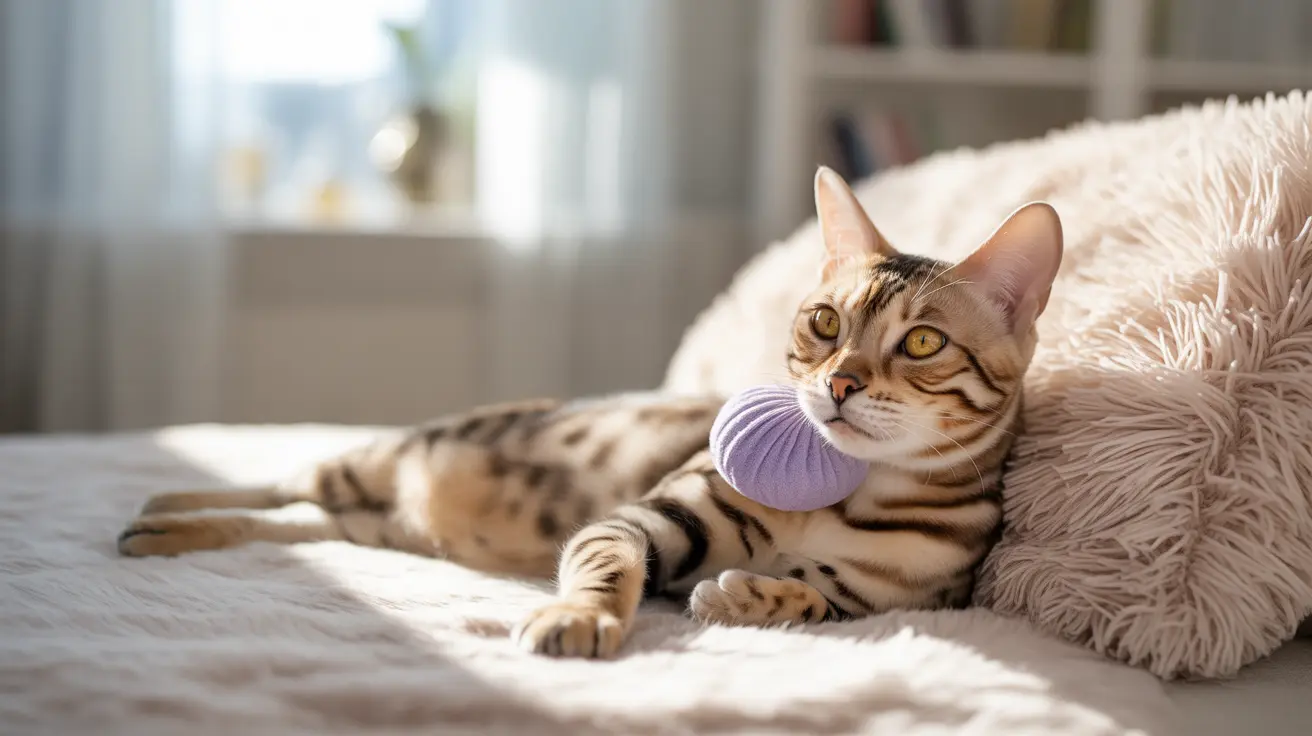Understanding Cat Lip Swelling: Causes and Signs
When your cat develops a swollen lower lip, it can be concerning for any pet parent. This common condition can range from mild allergic reactions to more serious medical issues. Understanding the underlying causes and available treatment options is crucial for providing the best care for your feline friend.
Most cases of feline lip swelling stem from allergic reactions, insect bites, or dental problems. However, more serious conditions like infections, autoimmune disorders, or tumors may also be responsible. Early identification and appropriate intervention are key to successful treatment.
Common Causes of Feline Lip Swelling
Allergic Reactions and Environmental Factors
Allergic responses are among the most frequent causes of lip swelling in cats. These can be triggered by:
- Food allergies (particularly to common proteins)
- Environmental allergens like pollen or dust
- Contact allergies from plastic food bowls
- Insect bites or stings
Medical Conditions
Several medical conditions can lead to swollen lips in cats:
- Eosinophilic granuloma complex (EGC)
- Dental disease and oral infections
- Feline acne
- Bacterial or fungal infections
- Autoimmune disorders
Safe and Effective Home Remedies
Immediate Care Steps
For mild cases of lip swelling, several home remedies can provide relief:
- Apply a warm compress for 5-10 minutes several times daily
- Switch to stainless steel or ceramic food bowls
- Keep the affected area clean with gentle, pet-safe cleansers
- Monitor for changes in eating habits or behavior
Dietary Modifications
Consider these dietary adjustments to help reduce allergic reactions:
- Implement a limited-ingredient diet
- Keep track of food ingredients that may trigger reactions
- Ensure fresh, clean water is always available
- Consider hypoallergenic food options if recommended by your vet
When to Seek Veterinary Care
While home remedies can be effective for mild cases, certain situations require immediate veterinary attention:
- Severe or rapidly worsening swelling
- Signs of pain or difficulty eating
- Presence of open sores or bleeding
- Associated symptoms like lethargy or fever
- No improvement after 2-3 days of home treatment
Prevention Strategies
To help prevent future episodes of lip swelling:
- Maintain regular dental hygiene
- Use appropriate flea and parasite prevention
- Keep your cat's environment clean
- Monitor for and address early signs of allergic reactions
- Regular veterinary check-ups
Frequently Asked Questions
What are the common causes of a swollen lower lip in cats and how can I identify them?
Common causes include allergic reactions, insect bites, dental disease, and infections. Look for additional symptoms like redness, scratching, changes in eating habits, or presence of sores to help identify the cause.
How can I safely treat my cat's swollen lower lip at home using remedies like warm compresses or diet changes?
Apply warm compresses several times daily, keep the area clean, and consider switching to a hypoallergenic diet. Always monitor your cat's response to ensure the treatment is effective.
When should I take my cat to the vet for a swollen lower lip instead of trying home remedies?
Seek veterinary care if the swelling is severe, accompanied by other symptoms, shows no improvement after 2-3 days of home treatment, or if your cat shows signs of distress or difficulty eating.
Can switching from plastic to stainless steel bowls help prevent or reduce lip swelling in cats?
Yes, switching to stainless steel or ceramic bowls can help prevent contact allergies and bacterial growth that commonly occur with plastic bowls.
What natural remedies or supplements are safe and effective for reducing my cat's allergic lip swelling?
Natural antihistamines like quercetin and short-term use of licorice root may help, but always consult your veterinarian before starting any supplement regimen.
Conclusion
While a swollen lower lip in cats can be concerning, many cases can be effectively managed with appropriate home care and preventive measures. However, it's crucial to monitor the condition closely and seek veterinary care when necessary. By understanding the causes and available treatment options, you can ensure your cat receives the best possible care for their specific situation.






